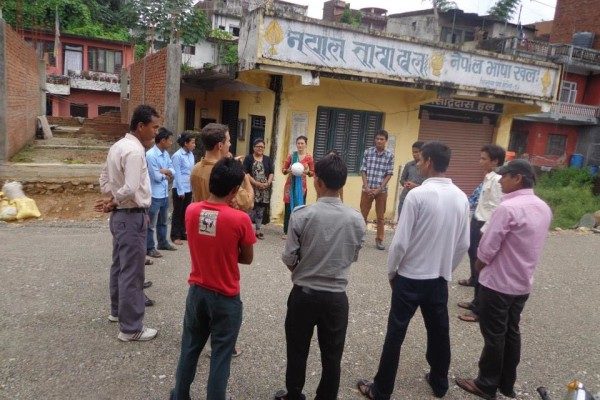
By Willem Struben and Colby Pacheco
Key Finding:
Donors must be especially rigorous in identifying and assessing the implementing capacity of civil society organizations CSOs seeking support. There are many CSOs with a determination to improve governance in their countries, but do they have the capacity to do so? Screening grant applicants in this regard can be difficult, even though networking with other donors can be useful – the obstacles here, however, should not be underestimated.
Background:
PTF’s support for CSOs that strive to promote good governance projects depends crucially on PTF’s assessment of the capacity of a CSO. Carrying out such an assessment can be especially difficult where the project in question has powerful pioneering features.
Not long ago, PTF supported a project which involved working with young people and using web-based technology to address abuses in the education sector. It is important to underscore that the project produced some important results: educating young people in a country where corruption is rampant about the challenges of curbing graft; testing new technologies to gather data; and forging links to relevant governmental officials in efforts to find constructive partnerships to curb extortion and bribery. However, with the benefit of hindsight, it is probable that outcomes could have been better if pre-project planning by PTF had been more rigorous, especially with regard to bolstering the CSO’s implementation capacity.
Our experience suggests that it is difficult for donors, notably small ones like PTF, to adequately screen applicants for grants in this regard. Yes, one has the network to discuss CSO capacity with other donors and to undertake a degree of due diligence. But full attention must be given to the unique challenges within each distinct environment.
For example, some CSOs already have powerful relationships with major donors, who are unlikely to tell another possible donor about weaknesses of their partners. Indeed, at times one wonders whether major donors themselves are sufficiently monitoring all of the grants to individual CSOs in order to ensure solid quality control. At PTF, we have found that it can be difficult to work with a CSO on a project when that CSO is heavily engaged in far bigger projects funded by major bi- or multi-lateral donors. Unsurprisingly, the CSO is likely to attach lower priority to project management and quality assurance on a project that constitutes only a fraction of its total operating portfolio.
Coming back to the issue of the CSO’s implementing capacity, we also have experience that suggests that donors, including PTF at times, may have overly high expectations of the results that a project can achieve. This arises, in particular, when supporting pioneering projects – for example, ones that rely heavily on youth engagement, or that involve substantial deployment of ICT tools. Temptation arises and splits in two directions: 1) stick to tested and reliable approaches or 2) jump full-on into the nebulous world of ICT4D. Innovative and pioneering approaches are crucial for advances in promoting good governance, and balanced with decades worth of lessons learned and empirical data they can help scale existing efforts. However, we need to be acutely sensitive to the potentially limited expertise of organizations taking a first step in a new direction, realistic in our expectations, and patient in our desire for tangible results.
In our case, the PTF-supported project aimed at countering abuse in the education sector through use of a mobile interface that allowed for SMS reporting. The technology proved useful in monitoring petty corruption, but the project’s results were negatively affected by the CSO’s awareness raising campaigns, staff time allotted, and attention to more “traditional” project monitoring activities. In this case, ambition overtook attention to detail in project planning. The desire to cover too much from the start, to underestimate the resources needed to “close the loop” (not only receiving and verifying complaints but relaying such information back to complainants and local duty bearers) contributed to a less than ideal result.
Conclusion
In areas of operation – particularly those that are inundated with aid money – donors would be well served by fully surveying the political economy of the aid environment. Better information and a clear view of what NGOs need and don’t need will contribute to improved selection of NGO partners, better development of relationships, and smarter use of funds.


Post a comment